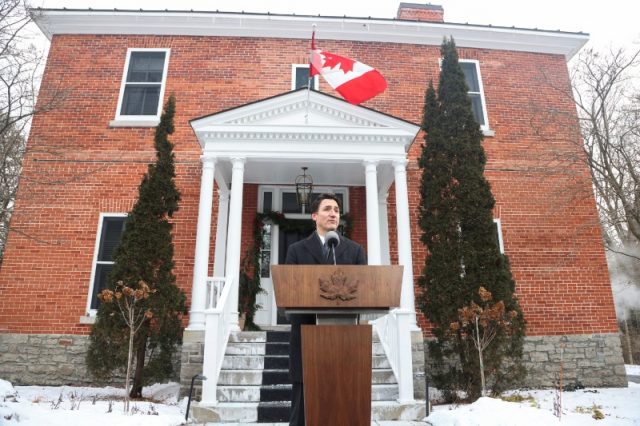
Justin Trudeau has resigned after more than nine years as Canada’s 23rd prime minister. Parliament will be prorogued and will resume sitting on March 24. Trudeau says he made his decision over the holidays after discussions with his family.
During his time in office, the federal government has been extraordinarily active on social policy. From legalizing cannabis, permitting medical aid in dying, introducing dental care, pharmacare and government-subsidized child care, Trudeau reimagined what Canadians can expect from their government.
The son of Pierre Elliott Trudeau, Canada’s 15th prime minister, leaves office never having tasted electoral defeat.
He was successful in his first run for elected office as a member of Parliament in 2008, at his run for the leadership of the Liberal Party in 2013 and in his first national election when he became prime minister in 2015.
The 2015 election is one for the history books as the Liberal Party under Trudeau entered the race with just 36 seats and was widely expected to remain on the sidelines. But due in part to the “sunny ways” campaign that Trudeau ran, along with his energy and likeability, the party breezed to a massive majority with 184 seats.
Trudeau also earned worldwide praise for appointing a cabinet that was gender-balanced, a policy he continued throughout his years in office.
Minority governments, Donald Trump
Trudeau’s Liberals were re-elected in 2019 and 2021, although both times to minority governments that required support in Parliament from the left-leaning New Democratic Party.
Trudeau dealt with three American presidents, most notably with Donald Trump during the president’s first term in office when the North American Free Trade Agreement was renegotiated.
After Trump’s re-election in November 2024, the president-elect has repeatedly mocked Trudeau, calling him governor of the 51st American state — comments that most Canadians find deeply offensive.
The COVID-19 pandemic transpired during Trudeau’s time in office. As with other social policies, Trudeau’s Liberals instituted a range of mandates to protect public health. Trudeau also invoked the Emergency Measures Act that allowed the federal government to exercise extraordinary powers to clear protesters that were blocking parts of Ottawa for weeks in February 2022.
Uphill battle
Trudeau’s resignation comes after members of his own party lost faith during the past several months in his ability to win a fourth mandate as leader heading into the anticipated October 2025 election. But the Liberals, with or without Trudeau, face an uphill battle after nearly a decade in power.
Winning a fourth consecutive term is rare in Canada. Only two prime ministers — Wilfrid Laurier and John A. Macdonald — have done so, and both accomplished the feat more than a century ago when the political landscape had fewer parties.
By resigning now, rather than battling his own party and then enduring what appears will be certain defeat in the next election, Trudeau leaves political life on a relative high note despite his unpopularity in the polls and among some in his own party. The shock resignation of one of his closest cabinet colleagues, Chrystia Freeland, likely played a role in his decision.
Perhaps Trudeau took to heart the example of United States President Joe Biden, who sought to run for one additional term, only to be forced to withdraw at the last moment by his own party. Critics have argued Biden’s efforts to hang on and his last-minute reversal contributed to the defeat of Kamala Harris and the loss of the White House to Donald Trump.
Personal toll
During Trudeau’s time in office, his marriage ended — as his own parents’ marriage did decades ago while Pierre Trudeau was in power. Two of his children are teenagers, while one is a pre-teen. Trudeau has in the past remarked: “The best days of my life are the ones I’ve spent outside with my kids.”
He will now have more time with his family.
Still young at age 53, Trudeau could begin a second public life as the late U.S. president, Jimmy Carter, did following his four years in the Oval Office. Or he could largely withdraw from the public sphere and pursue a private sector career.
No matter what Trudeau’s future holds, he leaves an indelible mark on Canada — especially on its social policies.![]()
Thomas Klassen, Professor, School of Public Policy and Administration, York University, Canada. This article is republished from The Conversation under a Creative Commons license. Read the original article.









